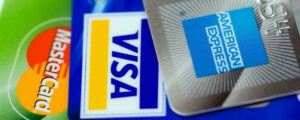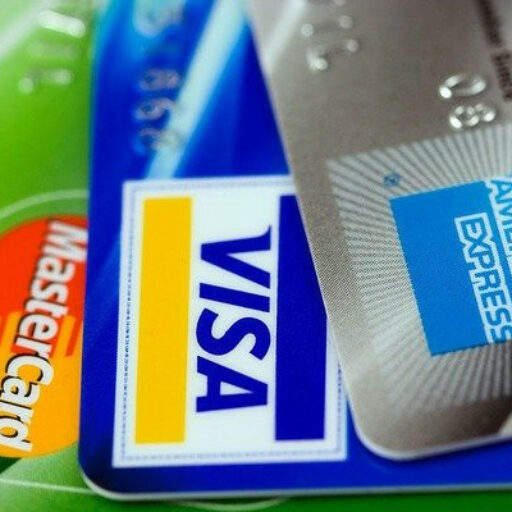Credit Card Debt Management Plan.

Nowadays, the ease of access to credit cards of banks and financial institutions has made their use very popular among the people. These cards have been very popular for receiving money, making in-person and out-of-person payments, and other facilities they provide.
In the world of bank cards, there are many different types of these cards. Two of the most important types of cards that can be mentioned are debit cards and credit cards. The main difference between the two cards is that when you buy from debit cards (debit cards) the money is paid from your accounts with the banks that have already deposited.
This post contains affiliate links. Please please read my Disclaimer for more information.
In fact, with this card, you will have access to the money you have in your accounts with various banks, the same bank cards that are used in Iran today. But when you use credit cards in your purchases, the purchase amount will be paid from the credit that the bank gives you, which is actually a kind of borrowing from the bank. So in the future, you will have to pay the amount of credit spent along with the interest.
The Use Of Credit Cards.
Credit cards can be used to make your daily purchases up to a limit previously agreed with the bank. The purchase amount will be added to your credit card account as debt, which you will have two ways to repay in the future; the first way is to pay off your debt on time. In this case, you will not pay any interest on your debt.
In a second way, it is possible to pay off the debt in small installments over time and on a monthly basis. In this case, in addition to the original money, you will have to pay an amount called interest (which is usually the highest in the United States at 29% per year). The shorter you pay off your debt, the lower your interest rate. The point is that these cards are unsupported, meaning that collateral is not required of banks to ensure repayment.
Debit Card Or Credit Card?
The question that arises in this regard is which card to use in daily purchases, debit cards, or credit cards? In general, it is recommended to use credit cards for purchases. Given that when using credit cards, you are using the money directly in your deposits with banks, you do not have the problems that you may face if you get into debt.
However, there are times when it is better to use credit cards. For example, in some hotels and car rental companies in the United States, people are required to use credit cards. Because if people use extra hotel services or their rental car is damaged, they can use credit card credit.
Looking at the history of credit cards, it can be seen that the issuers of this card initially offered only one card that had certain characteristics. But today, credit cards are classified into different types according to the interest rates that are applied to cardholders, the cost of receiving these cards, and the different rewards that they can bring to their holders.
Credit transfer cards: With these cards, the credit that must be paid can be transferred to other time periods.
Prize-winning cards: As the name implies, these cards offer some rewards for purchases made by customers with these cards.
Student Cards: These cards are issued for the use of students, who usually do not have a credit history.
Recharge Cards: These cards do not have credit restrictions at the time of purchase and the entire debt must be settled at the end of each month.
Where Do The Profits Of Credit Card Companies Come From?
Credit card companies are usually very profitable. These companies usually make their profit in several ways:
High-interest rates: The interest rate received from the credit card account is one of the main sources of huge profits that companies or banks issuing this type of card.
The annual fees charged for these cards.
Penalties for late payment, overpayment, and other penalties
Banks charge a fee for the transaction each time customers use their credit cards to make a purchase.
What Is A Debt Management Plan?
A debt management plan is a type of payment plan established and administered by a credit counseling agency. Many credit counseling agencies are non-profit organizations that offer education and assistance to help people better manage their finances.
When you work with a credit counseling agency, you will meet with a consultant who will review your financial situation and help you understand your options. If a DMP is suitable, the appraiser can negotiate with creditors on your behalf to create new payment plans.
As part of the negotiation, creditors can waive fees and lower the interest rate on your accounts if you agree to pay the debt through a DMP. With many DMPs, the goal is to fully pay off the debt within three to five years, which is easier when you accumulate less interest each month.
Once the DMP is initiated, you will make a single monthly payment to the advisory agency, which will then distribute the money to your creditors. The agency may also charge you a small monthly fee for the service, but your interest savings may more than cover the cost.
Typically, DMPs are only available on accounts that aren’t backed by collateral, such as credit cards. And while you may be able to choose which accounts you want to include in your DMP, you will need to close all credit cards that are part of the DMP.

Conclusion
If you think a DMP might be a good fit, find and meet with a qualified credit counselor in person, or work with a counselor over the phone or online if you prefer.
Many, but not all, credit counseling agencies are non-profit organizations, and you may want to limit your search to non-profit organizations. You can start by looking for agencies that are part of the National Foundation for Credit Counseling or Financial Counseling Association of America, two certification organizations, or that are accredited by the Council on Accreditation.
In preparation, you may want to review your credit report and list your current debts, information that you may need to prepare, and share with your counselor prior to your initial consultation.
You can start by checking the accounts listed on your Experian credit report online for free.
“If you have any feedback about credit card debt management plans that you have tried out or any questions about the ones that I have recommended, please leave your comments below!”
NB: The purpose of this website is to provide a general understanding of personal finance, basic financial concepts, and information. It’s not intended to advise on tax, insurance, investment, or any product and service. Since each of us has our own unique situation, you should have all the appropriate information to understand and make the right decision to fit with your needs and your financial goals. I hope that you will succeed in building your financial future.

Solange nnoko
This article provide great information on how one can manage credit card debts and set up a plan to pay off to reduce financial burden.